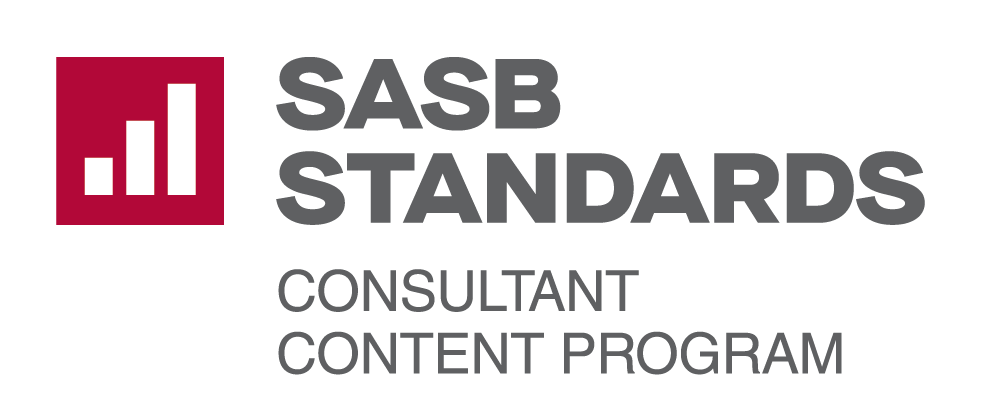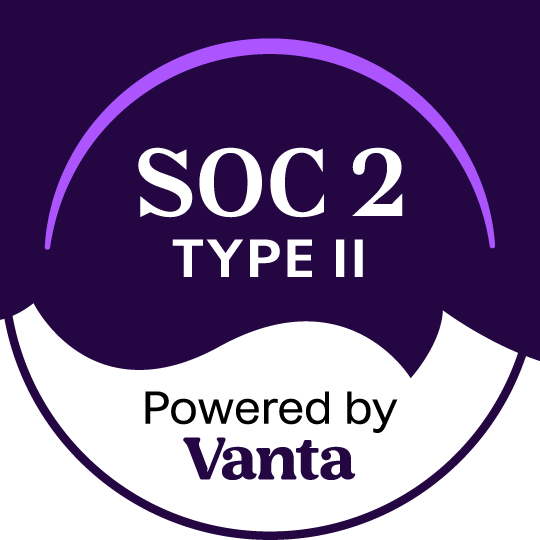Green Places CEO, Alex Lassiter, had the pleasure of interviewing sustainability expert Andrew Winston about his latest book, Net Positive: How Courageous Companies Thrive by Giving More than They Take, that he co-authored with Paul Polman. Both men have been influential within the sustainability space for a long time and have a ton of knowledge to share on how businesses can reduce their impacts on the planet. Read on to learn more about this new book and so much more…
AL: To get started, tell us about the new book. Tell us about your process and why you wrote it. Why now?
AW: That’s a very good question.
Ideally, we’re trying to start a movement. We need to get to scale on this sustainability thing, or whatever we want to call it. And, the book is, in our minds, a catalyst. It’s not just about getting people to read it, we’re trying to get a movement going.
But if you step back, the larger idea is that we’re facing these huge, enormous challenges. The existential challenges are the trio of climate, biodiversity and inequality. Obviously, there are specifics underneath those [challenges], but those are all getting scarier, they’re getting bigger, and they’re accelerating.
So, now, there’s this time crunch problem. We need to break the 50 year dogma and haze of shareholder optimization or maximization that we’ve been under. So, we’re trying to destroy that dogma of shareholders first in the short term, and say that business needs to be creating value for multiple stakeholders, and generating shareholder value by serving the world. That’s what drives your prosperity and the world’s prosperity. So, it isn’t a massive trade off, but that’s not to say there aren’t hard choices. There are and there are tough calls, and there are short term trade offs. But, in the long run, who does it serve to not solve these problems? Ray Anderson said years ago: “What’s the business case for ending life on the planet.”
There’s just no logic to it. So, that’s the answer – the time is now.
I think the obvious thing, just to add kind of a meta perspective, is doing this with Paul Polman. Unilever has been ranked number one in GlobeScan and other ratings by sustainability leaders for 11 years. So, it’s not for nothing, that they’re considered the most focused on sustainability. I don’t want to say the most sustainable, because I think that’s really hard to define. And, we’re not claiming in this book that Unilever is sustainable or net positive, nobody is yet. But, they’re as far along probably as any other large public company.
And, the list of the ones who are far along the journey is short. It’s been the same list for quite a while. It’s the Interfaces and the Ikeas and Patagonia. We need to expand that list greatly.
So for me, what was exciting was getting Paul on paper. He’s never done a book. He’s been out there talking about this. And, he went and did it as CEO for 10 years, but he actually never sat down and reflected on it by asking things like: What are the key elements? What do I think Unilever needed to start going down this path to make the sustainable living plan come alive and drive business success?
And, that process took about a year and a half of discussion and writing to get it down. So, I hope we’ve captured that. It’s not a book just about Unilever, it’s about many companies. But Unilever is the main storyline throughout, for obvious reasons. That’s where we get so many rich stories of Paul’s leadership. So, the why now is the urgency. And the relevance is, I don’t think anybody’s done it better than Paul at scale. I think the world needs to hear his perspective, and hear the way we, combined, came up with the plan or roadmap to building this kind of business.
AL: You mentioned we see the same companies on this “sustainable” list all the time. Why is it those same companies? Is it because sustainability happens to be core to the ethos of what they do? Is it because they’ve got a transformational leader? What exactly is it that justifies that there’s a real business case for doing this, that there’s a real ROI?
AW: This is probably the core question those of us in this field have been asking ourselves for a very long time. That list is mostly privately held or family owned businesses where there’s that leeway. Sustainability has always had a very heavy bend towards long term value creation. It has to be by nature that you’re building products and services that reduce the footprint, become circular, and help customers do that. That’s not a daily or quarterly task. And so, the list has always been the companies that can take a longer term view and are comfortable doing that.
It’s also an ethos, it’s about the founders and their families and what they believe. But, it was especially important to take that long term view, because some of the solutions or pathways were more expensive at the time.
There’s the very obvious level [of sustainability], like clean energy, that’s 1/10 the cost of what it was a decade ago, so companies don’t have to think about the long term to buy solar. It’s just cheaper now. So, we’re hitting this point of scale, on some of these things, where the early adopters spent more (like early adopters always do). Now you don’t have to be Patagonia to want to go to 100% renewables, which is why you see 20-25% of the global Fortune 500 with basically science based targets now. It’s not enough, that 20% is not enough, but 20% is 20 points more than it was six or seven years ago.
So, we’re going from that early adopter to the Crossing the Chasm idea of getting to the mass of companies, and I think we’re seeing the acceleration now. There’s this awakening that incremental isn’t good enough, it’s not going to create as much value for you anyways. And that the only way to stay relevant as a business is to start to think through your purpose very deeply and how you have a positive impact on everyone.
I’m pretty hopeful that the companies that we consider leaders are broadening pretty quickly. I think Microsoft joined that small list in recent years with their kind of carbon leadership. There are newer big companies like Google making a play and taking a stand. But, that means everything they do is under scrutiny now, including whether they support policy to fight climate change like the budget bill being debated now.
There’s a lot of disconnects in these big companies and so the transparency thing is going to keep accelerating. You didn’t have to do this 10 or 15 years ago. You weren’t feeling the direct pressure from all your stakeholders. Climate wasn’t costing you money directly yet. It was the right long term play, but you didn’t feel it. And, now you have to put your head pretty far in the sand not to feel the pressure – the very real biophysical pressures and the stakeholder pressures that are not going away. So, I’m hopeful that we’re at this curve moment, this tipping point moment.
AL: I think it is important to touch on the idea that with businesses, the notion today is you come up with trade secrets, and you use it to your advantage. That’s the capitalist way, but with sustainability this doesn’t work really well.
I think businesses have to learn a new muscle with this and be willing to actually share those best practices.
If you’re a sustainability professional, you may be on the payroll at Clorox, or Unilever, but your job is to focus on sustainability for the planet. This means you ought to be sharing your best practices, sharing the trade secrets around sustainability, because that’s going to actually amplify your impact and actually have long lasting effects.
AW: Yeah, actually, you’re getting at the competitive advantage versus shared prosperity challenge. We need to get to scale on sustainability, and the problems are clearly big enough now that, as you just referenced, nobody can deal with this alone. Having one solution to a problem and one company doesn’t matter at the scale that we’re talking about. And, there’s no company big enough to do it alone, and no government is big enough. This all requires us to work together and develop new muscles, as you said.
AL: When you think of stakeholders, you have to think about the different categories – you have market investors, you’ve got employees, and you have customers. When you consider what’s going on in the labor market today, and the generational change of Millennials and now Gen Z, is that playing into this? Is that adding to the pressure of every CEO? Of the CEOs I’ve talked to, their primary concern right now is hiring and retention. So, do you feel this is playing into that?
AW: Yeah, I think this is huge. Climate itself is a pressure but the two kinds of mega trends that I’ve worked on for years, that I’ve seen move companies no matter what was going on with climate, was transparency and the pressure questions coming in. And, I think more than anything, the pressure of younger employees and customers, we call it the Millennial pressure. Now, I think we have to call it Millennial and Gen Z, right? I mean, my teens are Gen Z, but Gen Z is starting to exit college, starting to get into the workforce. In the next five to 10 years, they will be big. And, Millennials will be middle aged, they’re not young anymore, and they’re going to be the dominant part of the workforce.
Now, with both quantitative and qualitative data, you hear that this generation – 35 and under, 40 and under – just have a different view of business. And, I think there’s a lot of reasons you can see why that’s happened.
Part of it is just the arc of history. Part of it is the social contract with business that broke down 20-25 years ago. And, so, everyone 40 and under came into the job market with no promise of lifetime employment, no pensions. So why wouldn’t you make your choices based on what you value? You’re not given a deal anymore. And, I don’t think companies realized what was going to happen from that. Like, if you stop giving people lifetime employment, their loyalty goes with their values and the belief that your company is worth working for.
It’s interesting what’s going on in the job market. There’s so many economists trying to figure out what’s going on. It was easy for people to demagogue that it was because of increased unemployment benefits, but those have gone away. Apparently, there’s just a lot going on with people checking their values and what they really want to do in life, and saying: I don’t want to do this anymore.
So, there’s this huge shift going on. It’s true, attraction and retention have become enormous problems. I don’t think companies are going to leave any stone unturned. And if one of those stones is showing their values, showing that they’re being more sustainable, showing that they do something for the world, I don’t think they’re gonna walk away from that – they’re gonna have to compete on that.
When Unilever talks about how they can tell their sustainability stuff is working, it isn’t just selling more stuff, the number one thing they say is employees. It’s attraction and retention, and the fact that they are one of the most in-demand employers in the world. They sell soap and shampoo. It doesn’t seem like it’s the most exciting thing. Yet, they’re in demand.
Three quarters of the people that come to Unilever today come there in part because of sustainability. It’s a remarkable statistic. I forget the numbers from the book exactly, but it’s like they recruit in something like 56 countries directly at schools. And in like 54 of those, they’re the top in their sector and in 25 of them they’re the top company.
AL: We recently published a survey of people 35 and under. And, it’s very confirmatory – 36% said a poor record on sustainability is an incentive to quit, 42% said it was a key determinant of how they choose where to work, and 46% said they think about climate change on a regular basis.
AW: Yeah, well, I never quite believe the surveys that say someone will take a pay cut for values. But, I think just like buying products, it’s an all else equal thing. It’s like, maybe a little less money, but you still got to make the money you want to make and live your life. I think they go to the place that’s going to share their values. And, you’re seeing this in consumers too. There are surveys asking questions like, do you feel better when you buy something that is sustainable?, and the percentages are really high. I think that same thing is happening in the buyers market for jobs. Feeling like you have a stake in the company and that you believe in what they’re doing is important. And, I think it’s true across all generations, it’s not like boomers don’t care about values at all, but it’s just not the same dominance that you see in the younger generations.
I hope it maintains; I think it will. You would have thought that coming out of this huge slowdown last year, that it would have been a seller’s market – companies would have been telling you who can work, and they’re begging for workers, right. I think there was a huge wake up about what really matters in your life because of the pandemic. And, there’s certainly a percentage that don’t have a choice, they’ve got to take a job. But there’s a broader range of people than we probably realize that can make some choices. Even if they’re low or middle income, they still have options. You know, it’s not as locked down, or they’re not as beholden as maybe companies thought. It’s fascinating what’s going on.
AL: What I hear a lot, and what I think is interesting, is this idea of being let down at some point. I took my first job in the summer of 2008. So, you’ve got a generation of people that, like you said, have had a kind of raw deal. And, I think through that and other things, there’s been an increasing distrust in institutions. The burden has shifted to businesses, which, by the way, is not a new idea. There’s a reason pensions existed. And, there’s a reason why towns have been built by businesses where they built the school, and they supported the families and they supported you into your old age. It’s just hard to break it down. And, so, people are asking: where can I affect change? And, I think a lot of people are waking up and saying: I can affect change by using the most valuable asset I have, which is my time.
AW: Yeah, I think that’s true. I’m getting a lot of calls now from my friends who have kids in college, or coming out of college, asking me questions like: Johnny realizes the planet has very little time and isn’t sure he should go into banking. What can he do on the environment? I don’t exactly know what to tell people because we don’t need everyone to go climb oil rigs. But, at the same time people can do something of impact from almost any job.
AL: When I was in school, the person that studied environmental science was viewed as someone that wasn’t going to work, but get a PhD and write. But, now I can’t find enough people with environmental degrees. And, actually from my vantage point, I think that the vast majority of businesses are completely under resourced from a personnel or expertise perspective to be able to solve this. I don’t think the expertise is going to be easily found. I think that these folks are going to be in super high demand, especially those that can relate a sustainability message back to an ROI for a business.
AW: I mean, the joint degrees at environmental and business schools, it’s only like seven or eight people a year but it needs to be 1000s.
AL: Yeah, I totally agree.
Here’s my last question on this. One of the things that we run into a lot is businesses who feel like they want to do this, but they have what I call a Patagonia fear. In business, typically the mantra is, if you’re going to do something do it really well.
And, a lot of them view sustainability as: if I can’t go for it, I’m not going to do it. So, it sits on the shelf, and I’m trying to encourage them to just do something. But, there’s this fear of doing something but not enough. There is a fear of being labeled as a greenwasher or being called out for doing it for marketing purposes.
How do you handle this? We want to live in a world where the businesses that do really good for the planet also do really well from a business perspective, but how do you break that down?
AW: I’ve heard that also, obviously, for years from everybody. I’ve dealt with clients for years, and not just heard: I’m not sure we can be number one, it’s been like: hey, we’re not Unilever, back off! There’s a little bit of both, and I’ve never quite understood it. Because, if businesses say: let’s talk about being innovative, but then they say: well, I’m not Apple, so I’m not going to try to be innovative. It’s a very weird reaction when you think about it.
But, I think the fear of being called out is legitimate, but it’s overblown. I mean, I’ve heard that for years. I wrote about this in Green to Gold 15 years ago. For example, Levi’s was buying 1% or 2% organic cotton and didn’t want to tell anybody, because they were afraid everyone would ask about the other 98%. When in reality, the NGOs who would be the ones calling you out, knew the situation better than they did. They knew, especially at that point, there wasn’t enough organic cotton for Levi’s to be 100%. They’re not calling you out. They’re thrilled you’re doing it!
That said, you will get called out for inconsistency. And, a big theme in our book is consistency as a leader, as a person walking the walk. You want your leaders and the company to be doing it consistently across the business. It doesn’t mean you have to be the best in the world, but it means finding those inconsistencies before someone else does.
I tell clients this all the time, as long as you’re not claiming you’re doing something that you’re not, or overstating, and you’re being transparent about where you are in the journey and what problems you’re having, you have enormous goodwill out there in the world. If you tell the NGOs that you don’t know how to solve the problem, instead of being afraid, you invite them in and ask for help to solve it, but that takes courage. It’s hard to do that, to say: I don’t know, as a person and as a business. But that’s partly how you get around this. You say: Yeah, I don’t know how to do this perfectly. Nobody does. And, and we’re figuring out a lot of this as we go.
So, it’s about courage. Just the ability to admit you don’t know and that is okay. But, I do think I see there are cultures, both geographically and sector wise, where setting goals that you don’t know how to reach are really hard. I find Asian companies, Japanese companies set a goal and know exactly how they’re going to go do it, and they go do it. And, there are engineering type companies or tech type companies where often they’re afraid to set a goal and not know how to do it. We have to get over that, and just say, the goal is basically being set by thresholds. It’s outside in, the goal is zero carbon by 2040. So, we better put it on the wall and figure out how to get there. And, that’s uncomfortable, but that’s different than saying: Well, I’m gonna give up. There’s discomfort. There’s courage. There’s a lot in this that you need to take on that you’re not used to. That’s not always rewarded in business – to be courageous and uncomfortable. And, I think that has to change, too.










